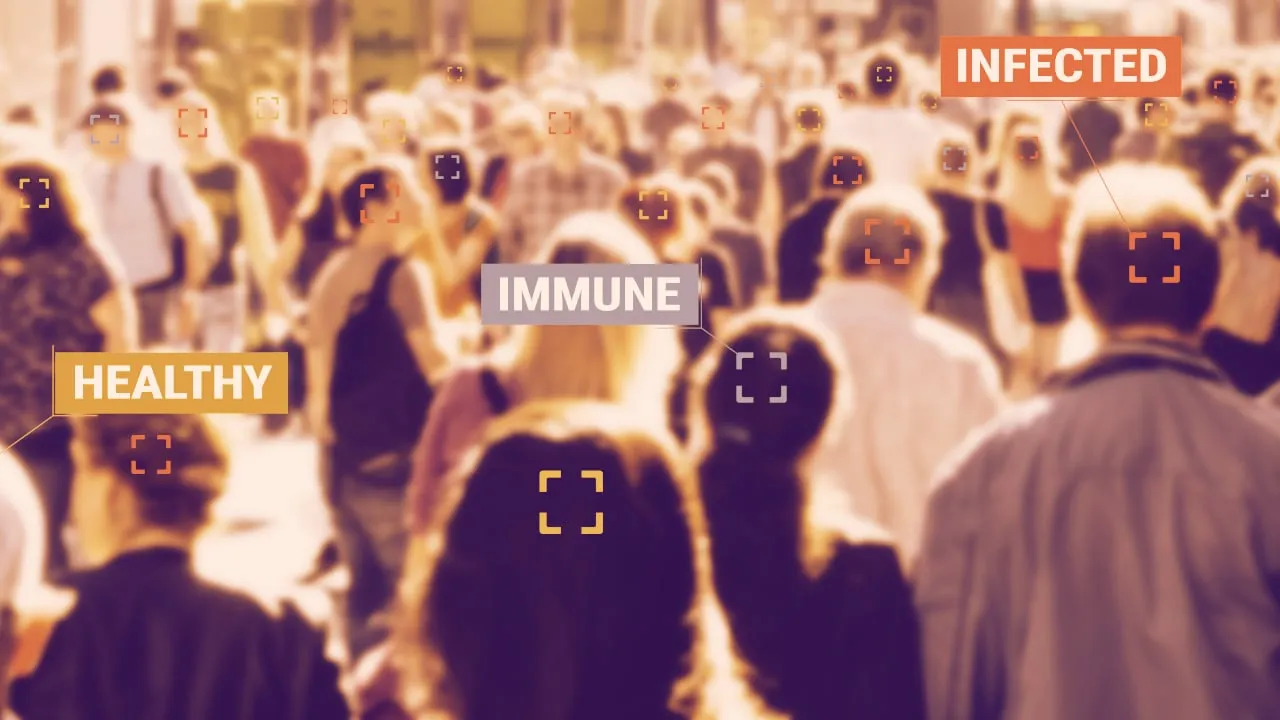In brief
- California has proposed a law that wants to track its citizens’ COVID-19 status by using blockchain tech.
- The idea is that citizens would flash their COVID-19 results—most likely on their phone—to be able to enter certain places.
- But civil liberties groups EFF and ACLU argue this is “a troubling step towards a national identification system.”
The Electronic Frontier Foundation (EFF) and American Civil Liberties Union (ACLU) have spoken out against a new law in California that wants to use blockchain for COVID-19 tracing.
In an online post last week, the digital rights duo described the bill as a “huge privacy concern” and added that “no one should have to unlock their phone and expose their health information in order to gain entry to their office, school, or neighborhood market.”
The bill, AB 2004, which was drafted by lawmakers in California earlier this year, wants to create a system where health records are on a blockchain so checking individuals’ COVID-19 status is easier. The idea is that people can be checked upon entry to certain places on whether they’ve had COVID-19. (Notably, the legislation doesn’t stipulate which blockchain, specifically, health officials in the state would use.)
Read more about why EFF opposes AB 2004 here: https://t.co/Dn5aE4GxJO
— EFF (@EFF) August 10, 2020
AB 2004 states that “verifiable health credentials” that use blockchain technology could provide solutions to privacy concerns of track and trace.
But Adam Schwartz, a senior staff attorney at the EFF, said in the post that “medical test results are a poor fit for public ledgers” and that a person’s COVID-19 status “may change from day to day.” He argued that a blockchain system would not be necessary to track citizens’ COVID-19 status and that it would “unfairly punish” those who couldn’t afford a coronavirus test.
Schwartz also added that a system like the one AB 2004 proposes would be “a troubling step towards a national identification system.” The bill, he argued, would get people into the habit of flashing ID to enter certain places and “create new information security problems when people hand their unlocked phones to gatekeepers.”
“In short, this bill is a blockchain solution in search of a problem, and COVID-19 is a problem that will not be so easily solved,” he said.
The bill was proposed in May and was immediately criticized by the EFF. The EFF’s recent statement came after the bill was amended at the end of June.
Privacy and national identification systems have become a hot topic since the coronavirus started wreaking havoc around the world—with some warning that governments could be using the pandemic to exert more control over their citizens.







